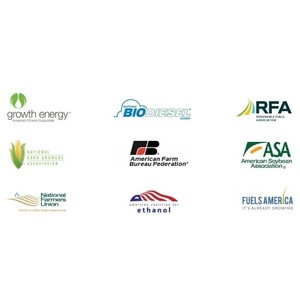Biofuel, ag groups demand answers on “gap” year SRE petitions

June 9, 2020
BY Erin Krueger
A group of nine biofuel and ag groups sent a letter to U.S. EPA Administrator Andrew Wheeler on June 9 requesting more information about small refinery exemption (SRE) petitions the agency has reportedly received for past Renewable Fuel Standard compliance years.
The letter explains the petitions in question were discussed during Wheeler’s May 20 testimony before the Senate Environment and Public Works Committee and confirmed by U.S. Department of Energy Under Secretary Mark Menezes that same day. “[Menezes] described the petitions as ‘gap filings’ intended to reconstitute after-the-fact a continuous string of exemptions for select oil companies ‘to be consistent with the Tenth Circuit Court decision,’” the groups said in the letter.
“This attempt to circumvent the courts and the RFS should be rejected out of hand,” the biofuel and ag groups continued. “Even if EPA granted retroactive ‘gap’ exemptions without simultaneously returning the number of RINs associated with the exemption to the petitioner, such exemptions would be inconsistent with EPA’s own policies and regulations, legal precedent, and Congressional intent.”
Advertisement
The letter calls these “gap filings” a tactic designed to subvert the law and sidestep a court order to uphold the RFS. “Rural America endured years of massive RFS demand destruction and market instability while forced to challenge EPA’s issuance of [SREs] in court,” the groups wrote. “Those exemptions were ultimately reversed by the U.S. Court of Appeals for the Tenth Circuit. Yet, instead of enforcing the Court’s decision in Renewable Fuels Association v. EPA, 948 F.3d 1206 (10th Cir. 2020), EPA appears to be entertaining a new round of backfill petitions intended to sidestep limits imposed by the courts and augment profits for select oil companies at the expense of America’s farmers and biofuel producers.”
The letter references the EPA’s online SRE dashboard, which the agency created with the intent of ensuring refineries and other interested parties receive the same renewable identification number (RIN) market information at the same time. However, the groups stress the dashboard does not currently disclose any SRE “gap filings.”
Advertisement
“Without further clarification, EPA appears to be reverting to a secretive pattern in the management of RFS refinery waiver petitions,” the groups wrote.
The letter requests the EPA disclose what compliance years the “gap filings” apply to; how many “gap filing” petitions have been submitted for each compliance year and how many RINs are under review; whether or not the EPA is reviewing or recommending review of “gap filing” petitions applying to years in which the applicant did not originally file a petition or already received a full or partial rejection; if the EPA has received any “gap filing” petitions back from the DOE, and if so, what the DOE’s recommendations were; under what legal basis and authority the EPA believes it may consider “gap filing” petitions; and why the “gap filing” petitions are not included on the EPA’s SRE dashboard.
The letter is signed by Growth Energy, the Renewable Fuels Association, the American Coalition for Ethanol, the National Biodiesel Board, Fuels America, the National Corn Growers Association, the National Farmers Union, the American Farm Bureau Federation, and the American Soybean Association. A full copy of the letter can be downloaded from the Fuels America website.
Related Stories
U.S. fuel ethanol capacity fell slightly in April, while biodiesel and renewable diesel capacity held steady, according to data released by the U.S. EIA on June 30. Feedstock consumption was down when compared to the previous month.
XCF Global Inc. on July 8 provided a production update on its flagship New Rise Reno facility, underscoring that the plant has successfully produced SAF, renewable diesel, and renewable naphtha during its initial ramp-up.
The U.S. EPA on July 8 hosted virtual public hearing to gather input on the agency’s recently released proposed rule to set 2026 and 2027 RFS RVOs. Members of the biofuel industry were among those to offer testimony during the event.
The USDA’s Risk Management Agency is implementing multiple changes to the Camelina pilot insurance program for the 2026 and succeeding crop years. The changes will expand coverage options and provide greater flexibility for producers.
EcoCeres Inc. has signed a multi-year agreement to supply British Airways with sustainable aviation fuel (SAF). The fuel will be produced from 100% waste-based biomass feedstock, such as used cooking oil (UCO).
Upcoming Events










